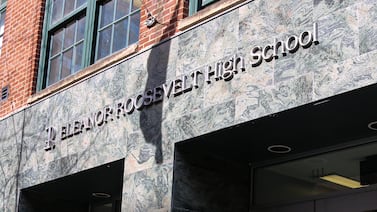A group that produced a report on the quality of reading instruction programs at teachers colleges nationwide has revised its score for Ball State University from a failing grade to an A.
The university’s Teachers College, the largest teacher preparation program in Indiana, is one of 45 programs that asked the National Council on Teacher Quality (NCTQ) for a revised score after the council issued a report showing that thousands of teachers attended preparation programs that taught poor reading methods.
The report caused a stir in Indiana and other states that have pushed to apply instruction strategies backed by the science of reading in elementary schools in order to improve students’ literacy rates. It gave around 260 of the 710 programs reviewed failing grades.
A spokesperson for the council said that so far, NCTQ has decided to give 24 schools across the country new, higher grades to reflect that they do teach the principles of the science of reading. While most were revised by a single letter grade, nine programs (including Ball State) jumped from F to A grades. Another five are still awaiting review.
The council anticipates that it will publish the new scores by mid-August.
The additional material Ball State submitted to NCTQ included descriptions of its course time, the spokesperson said, which contributed to its higher score. The review gave programs scores for how well they taught the five pillars of literacy: phonemic awareness, phonics, fluency, vocabulary, and comprehension. It gauged whether they taught methods that aren’t backed by research.
The council had based its previous grade on incomplete material obtained through a public records request, said Jackie Sydnor, an associate professor and chair of Ball State’s Department of Elementary Education. NCTQ has previously received criticism for using incomplete data in its analysis of teacher training programs.
What NCTQ received was primarily course outlines, which included objectives, grading scales, and university policies, but not calendars, reading materials, and assignments, Sydnor said, all of which better illustrated the principles of the science of reading. The council was also missing syllabi from two elementary education courses, she added.
“We knew that we taught all of these things, but it was disheartening to hear it reported that we weren’t,” Sydnor said.
The council said that it offered schools opportunities to correct their scores before they were public, but it’s not clear if these requests reached the Teachers College.
Two other universities in Indiana also requested new scores from the council.
Anderson University’s score will remain an A, according to a council spokesperson, while Huntington University’s D grade is still under review.
Aleksandra Appleton covers Indiana education policy and writes about K-12 schools across the state. Contact her at aappleton@chalkbeat.org.







